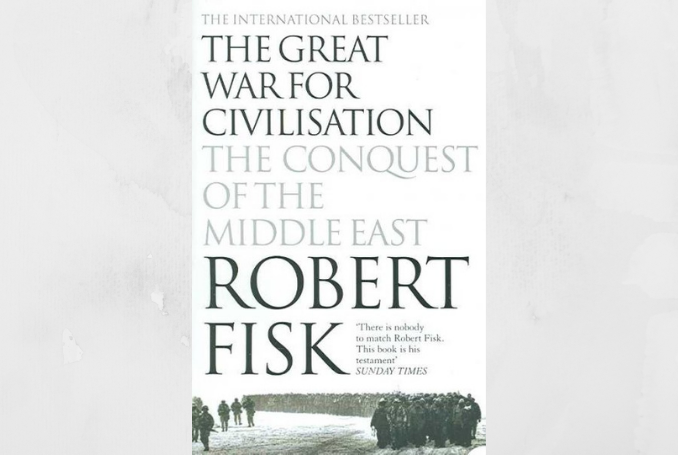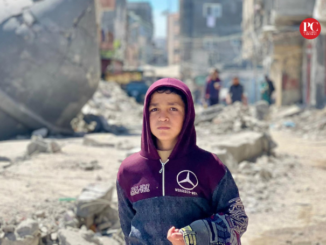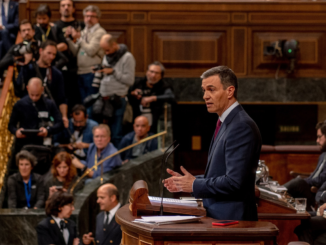
By Jim Miles
(The Great War for Civilisation: The Conquest of the Middle East. Robert Fisk. Fourth Estate – HarperCollins Publishers, London, 2005.)
Robert Fisk (1946-2020) was the penultimate war reporter for the second half of the Twentieth Century and the first decades of the Twenty-first.
When I first read this enormous work it served as a summation of current events covering all the wars in the Middle East, spreading out over a larger area to cover Afghanistan and Algeria. The Great War for Civilisation is a wonderfully written work: it is an ugly read for its brutally honest descriptions of the death and destruction, most of it falling on civilian heads, caused by the imperial drives of European countries throughout this region.
I read it when it was first published in 2005, and began re-reading it at the beginning of the current war in Ukraine and the ongoing wars in Yemen, Syria, Ethiopia, Mali and Palestine. Then it was current events. Now a generation later it is history, the kind of history that should be required reading for anyone interested in today’s current events.
It is not outdated and has stood the test of time as Fisk’s reporting was on the ground, in the sand, wind, mud, and bombs and blood and bones of the people affected by all these wars for civilization. Many current events books become quickly dated as their perspectives are proved wrong or their attempts at drawing conclusions prove to be ignorant and/or unrealistic. Fisk’s writing does not have that problem as his reporting is clear and ugly as it happens, a real perspective as to what happens to citizens and soldiers in the thick of war, without hyperbole, and without solutions, mostly a series of critical questions as to the ‘why’ of it all.
Relevant Today
One generation is not long, but much has transpired in that time.
Fisk was one of only a few who ever encountered Osama bin Laden, and now the U.S. has withdrawn from Afghanistan and by applying sanctions against the Taliban, creates another crisis situation in a country that has suffered war for decades, if not centuries. Algeria did not create much of a stir in Western media outside France, but the savagery, the killing, the torture, the destruction of families and lives in its ‘civil’ war was no less than in the other countries affected by current and past imperial designs.
A large part of the volume covers Palestine and its ongoing agony under occupation by the settler-colonial government of Israel. At the time of writing the Second Intifada was in full swing with the suicide bombers creating an asymmetrical rebuttal to the murder, torture, house destruction and ongoing colonization of Palestinian land. Arafat was on his way out and was replaced by Abbas who still holds power eighteen years later supported by Israel and the U.S. in his role as quisling peacekeeper. The Palestinian awareness that the suicide bombings of the time served to aid Israeli propaganda against “terrorists” – all Palestinians in the Israeli view – gave way to the current efforts of sumoud – steadfast perseverance in the face of continued military, police, and legal aggression.
Israel has moved further right while the Palestinians have countered with BDS, a few successes at the UN, and the most recent success the labeling of Israel as an apartheid state by three major humanitarian organizations. (B’tselem, Human Rights Watch, and Amnesty International). Given all that, everything that Fisk reported about the suppression of Palestinians and their identity would still be recognizable to him today,
Another large section of the book (it is a large book, it has large sections) deals with Iran and Iraq, the overthrow of Mossadegh, the overthrow of the Shah, the Iran-Iraq war, the subsequent sequence of wars against Iraq, including the use of sanctions which has become one of the main features of U.S. attempts at global hegemony. Fisk was present in all these areas, and it seems almost by pure luck of the draw that he was not killed by some of the situations he became involved with but not “embedded” in any particular army. Today Iraq remains unstable, still occupied to a degree by the U.S.; Iran is fiercely defiant of the U.S. and other western countries and is increasingly becoming integrated into the new Asian paradigm working against U.S. hegemony.
Take Aways
Apart from the history in all its blood and guts and total lack of glory, Fisk’s writing presents the reader with a verbal picture of the nastiness of actual wars, of the idiocy of all the representations made by foreign countries pretending to bring democracy and freedom to the region (but not about oil). Descriptions of families killed, dismembered, children dying from wounds, burns, and crushed bodies, soldiers charred to smoking bone fragments by incoming missiles – and most of that arriving thanks to the engineers at Boeing and their wonderful Hellfire missiles (among other makers of deadly weapons).
The politics of denial, obfuscation, and outright lying are clearly evident from the juxtaposition of what is experienced – the flash, heat, pounding vibrations of bombs, the whistle and ring of bullets, the crying parents and screaming children – and what the governments try to disguise as a humanitarian intervention.
To understand what is occurring in the world today – including Ukraine and Russia even though they are not in the Middle East, this is a necessary history. It also helps understand that hatred towards the U.S. is widespread throughout the region regardless of the fawning sycophantic rulers of various gulf states.
The Great War for Civilisation is an ugly history, not that of diplomats and artificial dates imposed by some academic writer of history. This is the grit and reality of what has happened to the people of the Middle East and is still happening today both in the Middle East and in the broader region affected by it all. Robert Fisk could not rest easy,
“Have they all died for history, then, those thousands of dead…whom I have seen with my own eyes across the Middle East? The dead soldier with the bright wedding ring on his finger, the slaughtered masses of Sabra and Chatila, the Iranians putrefying in the desert, the corpses of Palestinians and Israelis and Lebanese and Syrians and Afghans, the unspeakable suffering of the Iraqi, Iranian, Syrian, Lebanese, Afghan, Israeli – and yes, American – torture chambers, was this for history? Or for justice? Or for us?
We know the Balfour Declaration was made eighty-eight years ago. But for Palestinian refugees, in the slums of their camps, Balfour spoke yesterday, last night, only an hour ago. In the Middle East people live their past history, again and again, every day.” (p. 1283).

– Jim Miles is a Canadian educator and a regular contributor/columnist of opinion pieces and book reviews to Palestine Chronicles. His interest in this topic stems originally from an environmental perspective, which encompasses the militarization and economic subjugation of the global community and its commodification by corporate governance and by the American government.







